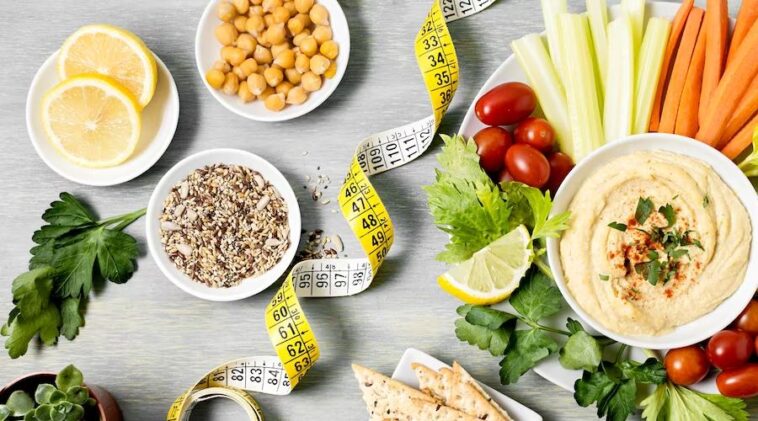A vegetarian diet can be a healthy and sustainable way to manage your weight and improve your overall health. However, for those looking to restrict their calorie intake to 1000 calories per day, it can be challenging to come up with a satisfying meal plan that meets all of your nutritional needs.
In this post, we will explore the benefits and challenges of a 1000 calorie vegetarian diet, provide some tips for success, and offer a sample menu to help you get started. Whether you are looking to jumpstart your weight loss journey or simply want to try a new approach to healthy eating, this guide has you covered.
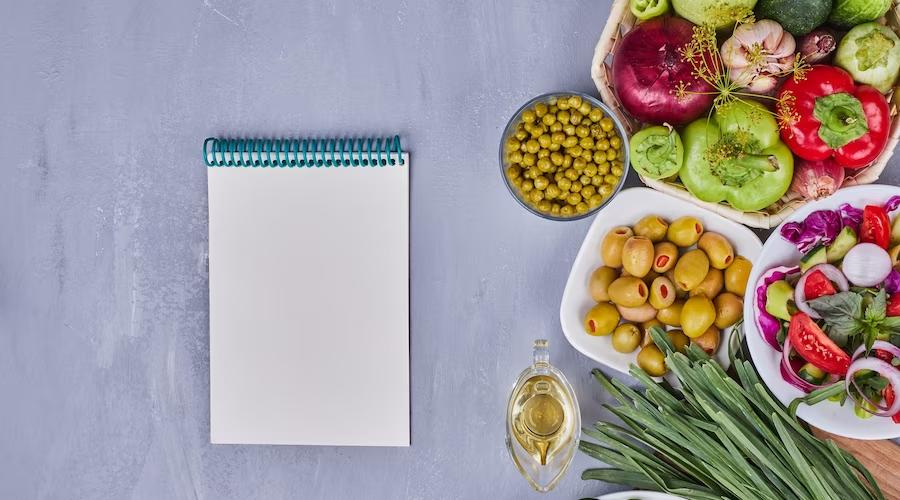
Understanding a 1000 Calorie Vegetarian Diet
A 1000 calorie vegetarian diet is a low-calorie diet plan that focuses on plant-based foods while restricting or eliminating animal products. This type of diet is designed for those who want to lose weight quickly or for those who want to maintain their current weight by reducing their calorie intake. While a 1000 calorie vegetarian diet can help with weight loss, it’s important to understand the risks and benefits before starting this type of diet.
What is a 1000 Calorie Vegetarian Diet?
A 1000 calorie vegetarian diet is a low-calorie diet plan that restricts daily calorie intake to 1000 calories or less while emphasizing plant-based foods such as fruits, vegetables, whole grains, legumes, nuts, and seeds. This type of diet typically eliminates or severely restricts high-calorie animal products such as meat, dairy, and eggs. While a 1000 calorie vegetarian diet can lead to weight loss and other health benefits, it’s important to ensure that you are still getting all the necessary nutrients to maintain your overall health.
How Many Calories Do You Need in a Day?
The number of calories a person needs in a day varies depending on their age, gender, weight, height, and activity level. According to the Dietary Guidelines for Americans, the estimated daily calorie needs for an average adult range from 1,600 to 2,400 calories for women and 2,000 to 3,000 calories for men. However, a 1000 calorie vegetarian diet is considered a low-calorie diet and should only be followed under the guidance of a healthcare professional.
Risks and Benefits of a 1000 Calorie Vegetarian Diet
Benefits:
- Quick weight loss
- Improved heart health
- Lower risk of chronic diseases
Risks:
- Nutrient deficiencies
- Reduced energy levels
- Increased risk of binge eating and other eating disorders
- May not be sustainable for long-term weight loss
It’s important to consult with a healthcare professional before starting a 1000 calorie vegetarian diet to ensure that it’s safe and appropriate for your individual needs and health status.
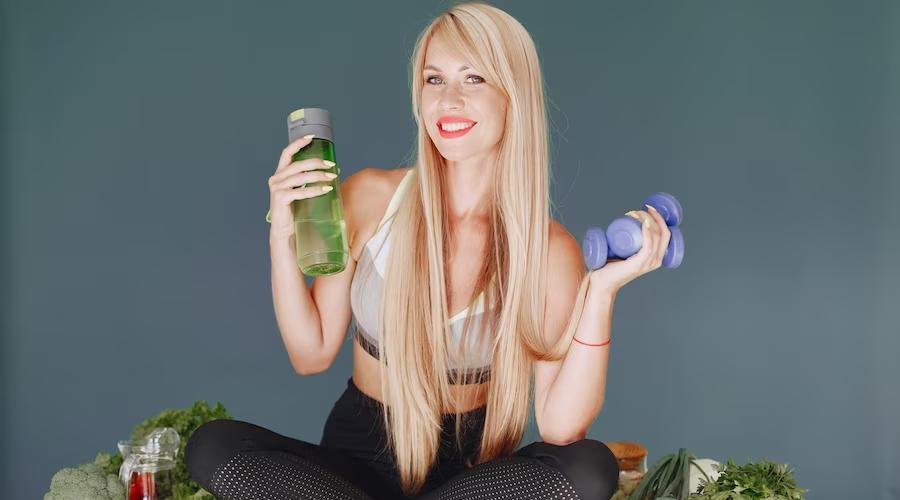
Building a Balanced 1000 Calorie Vegetarian Meal Plan
Building a balanced 1000 calorie vegetarian meal plan can be challenging, but it is essential to ensure that your body is getting all the nutrients it needs to function optimally. When designing your meal plan, it is important to focus on nutrient-dense foods that are rich in vitamins, minerals, and fiber. This will help you feel full and satisfied while consuming fewer calories. Aim to include a variety of fruits, vegetables, whole grains, legumes, and healthy fats in your meals.
Macronutrient Ratios for a 1000 Calorie Vegetarian Diet
A 1000 calorie vegetarian diet requires careful planning to ensure that you meet all your nutrient needs. A good starting point is to aim for a macronutrient ratio of 50% carbohydrates, 25% protein, and 25% fat. This will help provide enough energy to fuel your body, as well as essential nutrients like fiber, vitamins, and minerals.
It is important to choose healthy sources of carbohydrates, protein, and fat for your vegetarian meal plan. Good sources of carbs include whole grains, fruits, and vegetables. Protein can come from sources like legumes, tofu, tempeh, and seitan. Healthy fats can be found in nuts, seeds, avocado, and olive oil.
It is also important to be aware of micronutrient intake, such as iron, calcium, and vitamin B12. These nutrients are important for vegetarians to consume, as they may not be getting them from animal sources. Good sources of iron include leafy greens, lentils, and fortified cereals. Calcium can be found in foods like broccoli, almonds, and fortified plant milk. Vitamin B12 is only found in animal products, so it is important to supplement or consume fortified foods like plant milk, cereals, or nutritional yeast.
Foods to Include and Avoid on a 1000 Calorie Vegetarian Diet
When planning a 1000 calorie vegetarian diet, it is important to focus on nutrient-dense foods that will provide you with the energy and nutrients your body needs. Foods to include on a 1000 calorie vegetarian diet include:
- Whole grains such as brown rice, quinoa, and oats
- Fruits and vegetables of all colors
- Legumes such as lentils, chickpeas, and black beans
- Nuts and seeds like almonds, walnuts, and chia seeds
- Plant-based protein sources like tofu, tempeh, and seitan
On the other hand, it is important to avoid highly processed and high-calorie foods that may not provide adequate nutrition. Foods to avoid on a 1000 calorie vegetarian diet include:
- Sugary drinks and snacks
- Fried foods
- High-fat dairy products
- Processed meat substitutes
- It is also important to limit your intake of refined grains, such as white bread and pasta, as well as high-fat and high-calorie foods like cheese and oil.
Sample Meal Plan for a 1000 Calorie Vegetarian Diet
Here is a sample 1000 calorie vegetarian meal plan for one day:
- Breakfast: 1 cup oatmeal with 1 sliced banana and 1 tablespoon almond butter (300 calories)
- Snack: 1 apple with 1 tablespoon peanut butter (120 calories)
- Lunch: 1 small avocado and tomato sandwich on whole grain bread with a side of baby carrots (250 calories)
- Snack: 1 cup sliced cucumbers with 1 tablespoon hummus (50 calories)
- Dinner: 1 cup cooked quinoa with 1 cup mixed vegetables (300 calories)
- Total: 1020 calories
This meal plan includes a variety of nutrient-dense foods that will provide you with the energy and nutrients your body needs. It is important to note that this is just one example, and that meal plans should be customized to meet individual needs and preferences. It is also important to speak with a healthcare professional before starting any new diet plan.
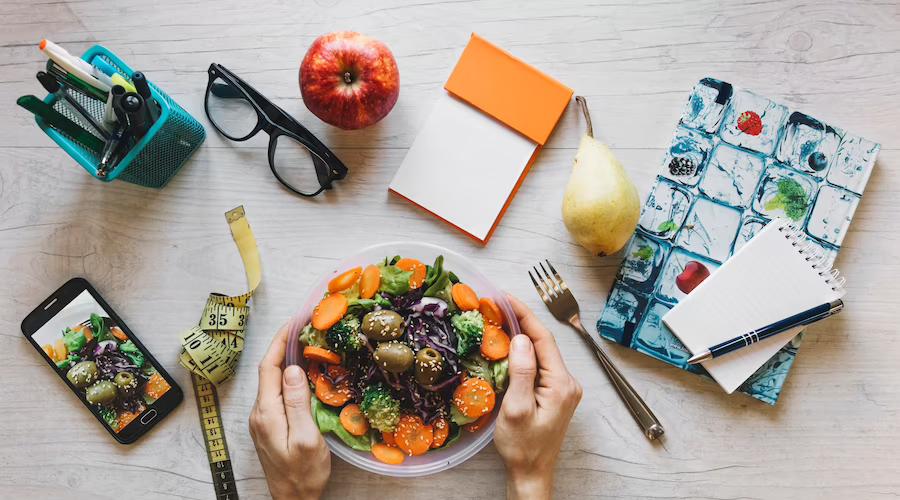
Vegetarian Protein Sources for a 1000 Calorie Diet
For vegetarians following a 1000 calorie diet, it is essential to make sure that they are getting enough protein to maintain muscle mass and support their overall health. Luckily, there are plenty of plant-based protein sources that can provide all of the essential amino acids needed by the body.
Best Vegetarian Protein Sources for a 1000 Calorie Diet
Some of the best vegetarian protein sources to include in a 1000 calorie diet plan are:
- Legumes such as lentils, chickpeas, and black beans
- Nuts and seeds such as almonds, chia seeds, and pumpkin seeds
- Tofu and tempeh
- Quinoa
- Greek yogurt or cottage cheese (for lacto-vegetarians)
How to Combine Vegetarian Proteins for a Balanced Diet
To ensure that you are getting all of the essential amino acids, it’s important to combine different vegetarian protein sources throughout the day. Pairing legumes with grains, such as lentil soup with a side of quinoa, can provide a complete protein source. Additionally, combining nuts or seeds with a protein-rich food like tofu can also help ensure that you are getting a well-rounded protein intake.
Tips for Getting Enough Protein on a 1000 Calorie Vegetarian Diet
Getting enough protein on a 1000 calorie vegetarian diet can be challenging, but it is possible. Some tips for ensuring that you are meeting your protein needs include:
- Planning your meals ahead of time to make sure you are incorporating enough protein sources
- Snacking on protein-rich foods like almonds or hummus throughout the day
- Using protein powder supplements in smoothies or shakes
- Choosing higher protein options when eating out, such as a veggie burger with a side of beans.
Nutrient-Dense Foods for a 1000 Calorie Vegetarian Diet
Following a 1000 calorie vegetarian diet requires careful planning to ensure that you’re meeting all your nutritional needs. Nutrient-dense foods should be at the forefront of your meal planning to ensure that you’re getting the most nutrition possible from each calorie you consume. Nutrient-dense foods are typically rich in vitamins, minerals, fiber, and other beneficial nutrients, while also being low in calories.
Best Nutrient-Dense Foods for a 1000 Calorie Vegetarian Diet
- Leafy greens: Spinach, kale, collard greens, and other leafy greens are low in calories and high in vitamins and minerals such as vitamin K, iron, and calcium.
- Berries: Berries such as blueberries, raspberries, and strawberries are rich in antioxidants and fiber, and are low in calories.
- Legumes: Lentils, chickpeas, and beans are high in protein, fiber, and iron, and are also low in calories.
- Nuts and seeds: Almonds, chia seeds, flaxseeds, and other nuts and seeds are rich in healthy fats, protein, and fiber, making them a great addition to a vegetarian diet.
- Whole grains: Whole grains such as quinoa, brown rice, and oats are rich in fiber, vitamins, and minerals, and can help you feel full and satisfied.
How to Incorporate Nutrient-Dense Foods in Your Meals
Incorporating nutrient-dense foods into your meals is simple with some creativity and planning. Here are some tips:
- Add leafy greens to your smoothies or omelets for a nutrient boost.
- Top your morning oatmeal with fresh berries for a sweet and nutritious breakfast.
- Use legumes as a base for your salads or soups for a protein-packed meal.
- Snack on nuts and seeds throughout the day to keep your hunger at bay.
- Swap refined grains for whole grains in your meals to add more fiber and nutrients.
Benefits of Eating Nutrient-Dense Foods on a 1000 Calorie Vegetarian Diet
Incorporating nutrient-dense foods into your 1000 calorie vegetarian diet has many benefits, including:
- Meeting your nutritional needs while consuming fewer calories.
- Feeling fuller and more satisfied after meals.
- Maintaining stable blood sugar levels.
- Reducing the risk of chronic diseases such as heart disease, type 2 diabetes, and certain cancers.
- Boosting your immune system and overall health.
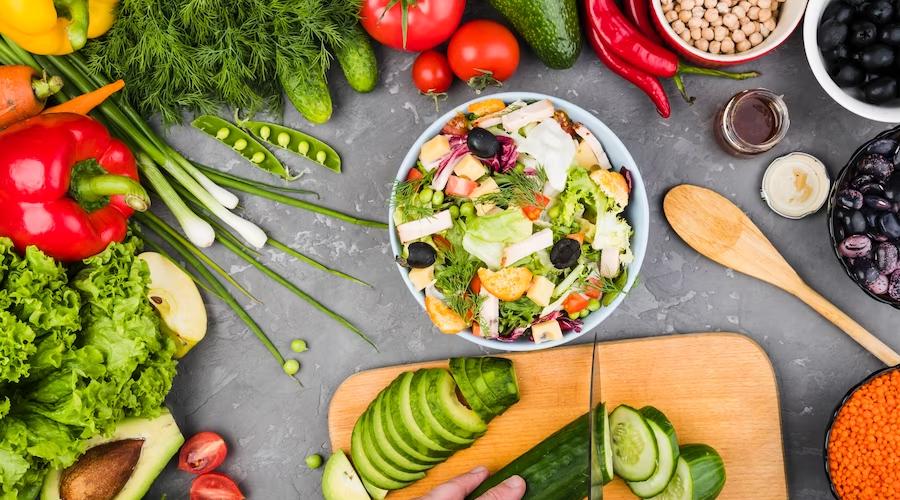
1000 Calorie Vegetarian Snack Ideas
For healthy and sustainable weight loss, it is important to choose a nutritious and balanced diet that meets your daily calorie needs. A 1000 calorie vegetarian diet can be a challenging but rewarding option for those looking to lose weight while following a plant-based lifestyle. When it comes to snacks, it’s important to choose options that are not only satisfying but also provide the necessary nutrients to fuel your body throughout the day.
For healthy snack ideas on a 1000 calorie vegetarian diet, consider the following options:
Healthy Snack Ideas for a 1000 Calorie Vegetarian Diet
- Hummus with raw vegetables such as carrot sticks, celery, or bell pepper
- Apple slices with almond butter
- Greek yogurt with mixed berries and chopped nuts
- Roasted chickpeas seasoned with your favorite spices
- Edamame with sea salt and lemon juice
How to Stay Full Between Meals on a 1000 Calorie Vegetarian Diet
To stay full between meals on a 1000 calorie vegetarian diet, it’s important to choose snacks that are high in protein and fiber. These nutrients help keep you feeling full and satisfied for longer periods of time. In addition, staying hydrated by drinking plenty of water and herbal tea can also help reduce hunger and prevent overeating.
Preparing and Packing Vegetarian Snacks for On-the-Go
Preparing and packing vegetarian snacks for on-the-go can help you stay on track with your 1000 calorie vegetarian diet even when you’re busy or away from home. Consider packing snacks in small containers or resealable bags that are easy to grab and go. Some ideas for on-the-go snacks include trail mix with nuts and dried fruit, energy balls made with dates and nuts, and pre-cut vegetables with hummus or dip.
FAQ
No, a 1000 calorie vegetarian diet is not suitable for everyone. It is important to consult with a healthcare professional or registered dietitian before starting any new diet or exercise plan, especially if you have any underlying health conditions.
Yes, a 1000 calorie vegetarian diet can help you lose weight if it is properly balanced and you are in a calorie deficit. However, it is important to make sure you are still getting all the necessary nutrients to support your body’s functions.
No, a 1000 calorie vegetarian diet is not recommended as a long-term diet. It is considered a low-calorie diet and should only be followed for a short period of time to avoid potential health risks and nutrient deficiencies.
Yes, it is important to incorporate exercise into any weight loss plan, including a 1000 calorie vegetarian diet. However, it is important to make sure you are still getting enough calories and nutrients to support your activity level.

